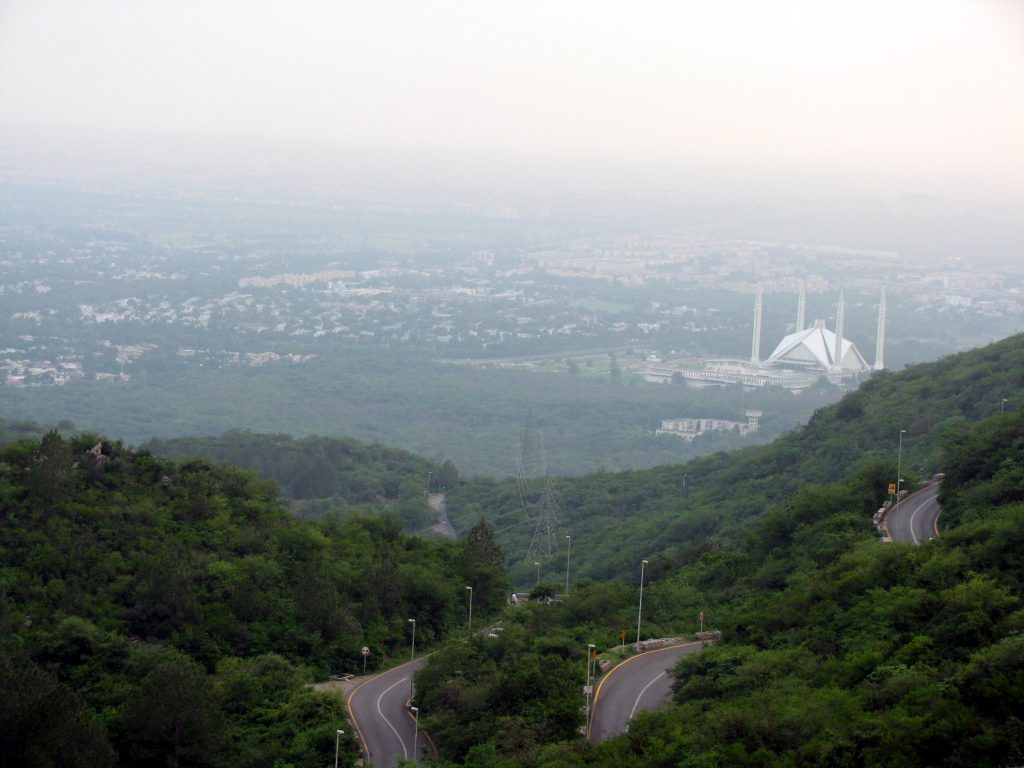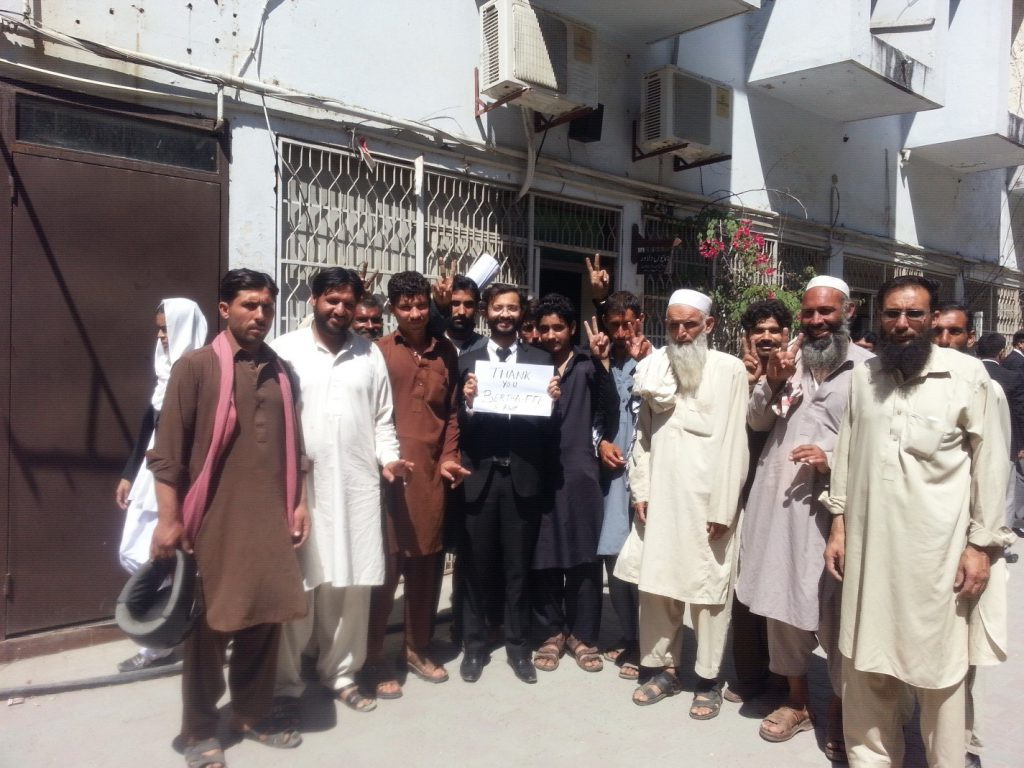
Umer Gilani was a Bertha Justice “Be Just” Fellow at the Foundation for Fundamental Rights (FFR), in Pakistan. Among the cases he led during his fellowship at FFR, and with the support of his colleague Shahzad Akbar, was the defense of the residents of an informal settlement, Afghan Basti. This is his personal account of the case and the residents’ struggle.
Perched at the foot of the majestic Margalla Hills, built on a grid pattern, leafy and impeccably clean, Islamabad is indisputably South Asia’s prettiest city. Pakistanis with money love the city and desperately want to own a parcel of it, thus the astronomic real estate prices. But Islamabad the Beautiful has a completely different relationship with a fairly sizeable segment of its populace – the street cleaners, domestic servants, fruit-sellers, gardeners, construction workers, tailors and taxi drivers who cannot afford the city’s spacious villas. The city is planned in a way that these people are condemned to living in katchi abadis. To them, Islamabad can be quite cruel, like in July 2015, when the bulldozers came for the people of the katchi abadi known as Afghan Basti, I-11.
Katchi abadis are urban slums built on state land where the residents have no title to the terrain beneath their dwellings. Afghan Basti, located in the city’s south-eastern corner, was one of them – a cluster of mud huts that was home to around 10,000 people. Afghan Basti was far from unique; roughly a third of Pakistan’s urban citizens live in such places.
In the run up to the demolition, the residents of Afghan Basti staged numerous street protests with the support of the Awami Workers Party. They also pleaded their case before the High Court, contending that the planned demolition would violate various policies and laws which protect the right to shelter. The National Housing Policy 2001, in particular, places a moratorium on katchi abadi demolitions without prior resettlement. But neither the High Court nor the Capital Development Authority (CDA) would listen. At the last hearing, when the katchi abadi residents showed up at the Court in good numbers, they were thrown out of the courtroom without a stated reason.
On July 30, 2015, the CDA and Islamabad Capital Territory Administration razed the entire Afghan Basti settlement. The whole community became homeless in a single day. Although some residents, especially women, symbolically resisted the evictions by climbing to the roofs of their mud huts in front of the heavily armed state forces, the bulldozers ultimately prevailed.


The travails of the katchi abadi’s residents did not end with the demolition. The police alleged that the residents had pelted stones at the evictors, had held police officers hostage and had beaten them. In connection with these charges, sixty-six of the residents were arrested the day of the demolition and charged with terrorism, attempted murder and numerous other serious charges.
Pakistan does not have a public defender system, so the residents approached the Foundation for Fundamental Rights for pro bono legal representation.
The first step in our defense strategy was to get the case transferred out of the anti-terrorism courts to the somewhat less draconian ordinary criminal courts. To this end, we relied heavily on a particular strand of jurisprudence, developed by some fair-minded jurists like Justice Asif Khosa, which defines terrorism narrowly. We argued that even if the allegations leveled were deemed correct, a mob of unarmed slum-dwellers allegedly hurling pebbles at heavily armed policemen does not constitute terrorism, whatever else it might be. Only after the prosecution’s repeated absence from eleven consecutive hearings spanning four and a half months between October 2015 and February 2016, were we able to get the application decided. On February 15, 2016, the terrorism charges were removed and the case transferred for trial to the Magistrate’s courts.

In the Magistrate’s court, we faced a similar series of adjournments. Just when we were beginning to lose hope, the tide turned. Due to the persistence of the residents who kept showing up to proclaim their innocence, day in and day out, the Magistrate finally granted their application. On May 17, 2016, they were acquitted on the grounds that the evidence against them was not independent and seemed fabricated by the police.

After having reclaimed their innocence in court, the accused can file all sorts of claims to right the wrongs done to them – claims against wrongful eviction, loss of property, false and malicious prosecution, and violation of the fundamental right to liberty. However, the reality is that they do not have time to fight more legal battles. Now, they are busy rebuilding their lives and livelihoods, selling fruit in various parts of the city and seeking rented shelter wherever they can afford it.
The I-11 tragedy was not without its silver lining. After the demolition, the Supreme Court of Pakistan granted a temporary injunction against further katchi abadi demolitions in Islamabad. On numerous hearings, well-attended by katchi abadi residents, the Court has publically recognized the need for an inclusive housing and zoning policy in the country. The Law and Justice Commission of Pakistan is, with the assistance of stakeholders and activists, in the process of developing a legal and policy framework for protecting the constitutional right to shelter. All over the country, there is at least some recognition that the right to equality which Pakistan’s Constitution promises to all citizens has yet to be reflected in the geography of our beautiful cities. And so, the struggle continues…

Umer Gilani, former Bertha Justice “Be Just” Fellow at Foundation for Fundamental Rights, Pakistan
Follow Umer at Twitter @umergilani_lums
Follow FFR at Twitter @ffr_pk
Article Tags: Activism / Bertha Fellows / FFR / Human Rights / Land Rights / Pakistan